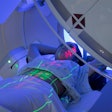The National Cancer Institute (NCI) awarded the Roswell Park Cancer Institute (RPCI) of Buffalo, NY, a $10 million federal grant to continue its research program on photodynamic therapy (PDT), specifically in head and neck cancers.
"We believe that our work with photodynamic therapy will lead to three important results for patients with head and neck cancers," stated Sandra Gollnick, PhD, of the department of cell stress biology and director of the Photodynamic Center, in a press release. "We aim to demonstrate that PDT results in long-term tumor responses that compare to, or prove even better than, the current standards of care; that PDT can lead to less arduous treatment regimens; and that it can cause significantly fewer quality-of-life issues."
Outcomes for these cancers have remained largely unchanged over the past 30 years. Head and neck squamous cell carcinoma (HNSCC) is the sixth most common cancer worldwide and the eighth most common cancer occurring in men in the U.S.
While standard-of-care treatment (surgery, radiation, and chemotherapy) is effective for early-stage cancers, it can also severely affect quality of life, affecting facial appearance and impairing the patient's ability to chew, swallow, and speak. Current treatment outcomes remain poor for later-stage and recurrent cancers, according to the RPCI.
Photodynamic therapy combines light-sensitizing drugs with laser light, which may preserve quality of life. It is an U.S. Food and Drug Administration-approved cancer treatment that does not induce treatment resistance or result in cumulative toxicity, and it can be repeated many times to generate an effective cure, the institute noted.
Previous studies have shown that PDT is a safe and well-tolerated therapy for early-stage cancers of the oral cavity/oropharynx and larynx, and it has resulted in excellent outcomes with good functional and cosmetic results for both early- and late-stage HNSCC.



















